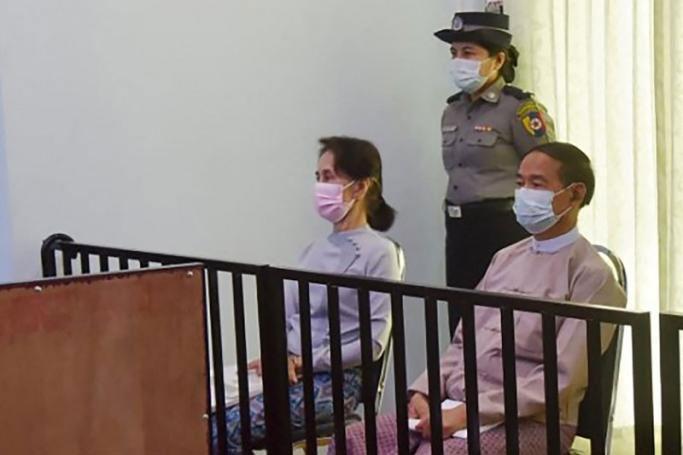The deputy director-general of the Union Election Commission (UEC) appointed by the Military Council has been questioned at a hearing on 11 March in the case involving alleged 2020 election fraud in which three people including Aung San Suu Kyi are charged.
for the case which charged three people including the state counselor, Aung San Su Kyi for electoral fraud.
UEC Deputy Director-General Sai Kyaw Thu appeared in court as a witness for the prosecution.
Defence lawyers asked questions of the witness in attempt to quash the charges against the former State Counselor during cross-examination.
The case is heard every Friday and another UEC official appointed by the Military Council will be questioned as a witness for the prosecutors at the next hearing.
The trial is hearing charges against Aung San Su Kyi, Win Myint, the former president, and Min Thu, union minister of the ministry of union government office.
The three people have been charged with Article 130-A for influencing the UEC in the 2020 general election.
The complainant for the case is Aung Myo Lwin, the director-general of the Military Council-appointed UEC.
There are 22 witnesses for the prosecution including the complainant and the sentencing is set for May.
Article 130-A allows for imprisonment up to three years, and or fines for the violation of the amendments.
The former State Counselor Aung San Su Kyi is currently serving a six-year prison sentence for five cases and she is still on trial for another 12 cases including alleged corruption.
The Myanmar military claimed one of their reasons for the 1 February 2021 coup involved alleged election fraud, an issue they brought up repeatedly with the UEC after the November 2020 election.












